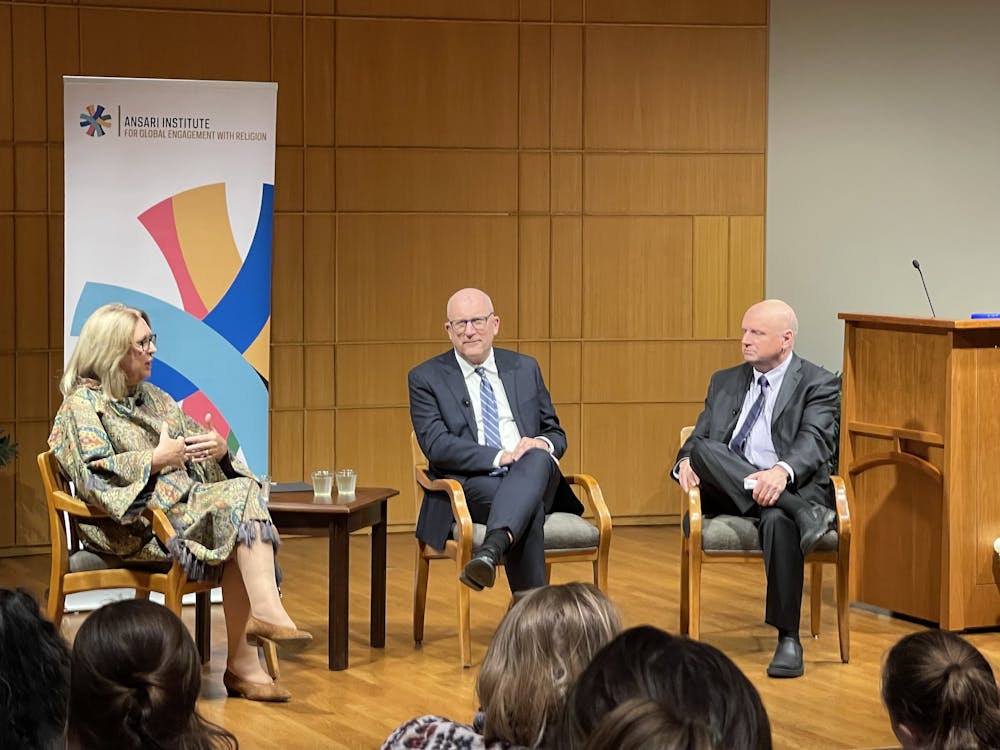On Wednesday night, former president of Ireland Mary McAleese spoke alongside provost John McGreevy and Scott Appleby, dean of the Keough School of Global Affairs, about Catholicism and democracy in a changing era.
McAleese, who was president of Ireland from 1997 to 2011, holds a doctorate in canon law from Rome's Pontifical Gregorian University and has been critical of the Church’s stances, specifically related to women being excluded from priesthood.
McGreevy began with an overview of the tortured historical relationship between Catholicism and democracy from the late 18th century until Pope Francis' term, highlighting periods of both rejection and endorsement of democratic ideals.
McAleese then discussed Ireland’s history of political and religious oppression, from British imperialism to sectarian division in the 1960s.
She also discussed the weakening of the Catholic Church’s grip on Irish society. McAleese said the percentage of Catholics in Ireland signing off on the census as Catholic has declined from 90% to around 60- 70%.
She reflected on a personal story of her upbringing in Belfast that expressed the control of the Church in Ireland. The local parish priest reprimanded her mother, who almost died after her 11th pregnancy, for undergoing a hysterectomy without his permission. “That was the Catholic Church then in Ireland,” she said.
McAleese criticized the Church’s “default language on same-sex marriage, as one defecting bishop put it, ‘not the language for loving God.'” She expressed frustration that the Church is not “allowing the grace of God to flood us with love and forgiveness and tolerance.”
She also expressed concerns about the resistance she has witnessed in Rome to reforms on issues like equality, LGBTQ rights and greater democratization with the Church structure and teachings itself. This resistance could undermine the Church’s effectiveness and relationship with many Catholics, she said.
”I have found in two levels, resistance to the democratization and the impulse of the human person and acceptance of human rights in particular. The equality agenda which impacts women and LGBTIQ [people] find strong resistance to that,” she said.
McGreevy recognized that the Church faces challenges balancing diverse views among its 1.3 billion members globally on these issues. McAleese followed up by voicing her concerns about the next generation of Catholics and how these views may affect them.
“I’m very conscious that a new generation is growing up, which is why I feel a real sense of responsibility to continue to hold on to the fight and to fight internally in the Church and to say to the Church, 'please take the issue of our human rights seriously, particularly to the idea of equality.'" she said. "Seriously, stop dismissing the democratic agenda and understand that they have the potential to turn the church into something wonderful, much more wonderful than it is.”
The event was sponsored by the Ansari Institute for Global Engagement and was part of Notre Dame’s forum of "The Future of Democracy." McAleese is the board chair for the Ansari Institute for Global Engagement with Religion.










